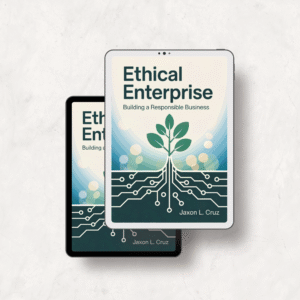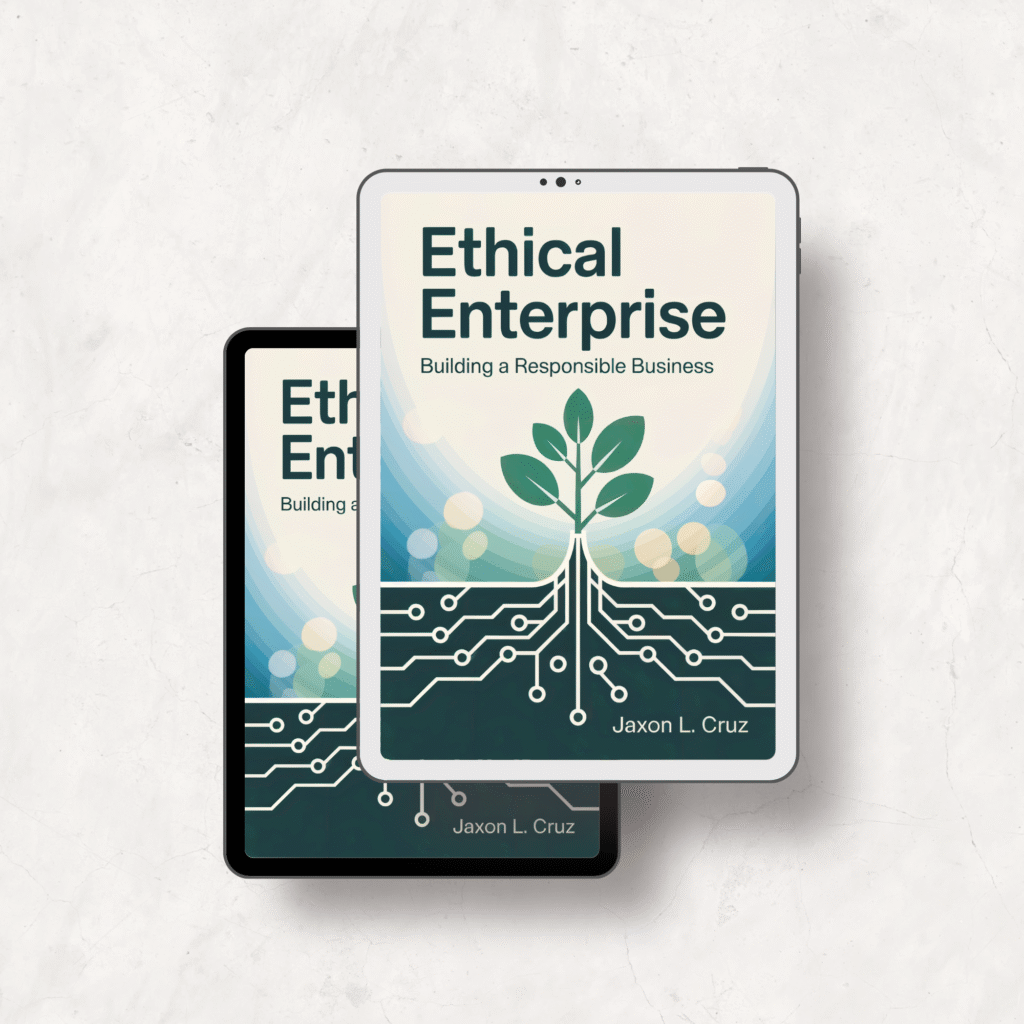Ethical Enterprise Building Responsible Business Review – Complete Guide to Sustainable Business Practices

Ethical enterprise building has become essential for modern businesses seeking long-term success and stakeholder trust. Today’s consumers and investors demand transparency, accountability, and genuine commitment to social responsibility. “Ethical Enterprise: Building a Responsible Business” provides a comprehensive framework that transforms abstract ethical concepts into actionable business strategies. This practical guide addresses the growing need for sustainable business practices while maintaining profitability and competitive advantage.
Unlike traditional business books that treat ethics as an afterthought, this resource positions ethical enterprise principles at the core of organizational strategy. The author delivers proven frameworks for integrating corporate social responsibility, sustainable practices, and stakeholder engagement into daily operations, making ethical business practices both achievable and profitable.
What You’ll Discover
- Corporate Social Responsibility Framework: Learn systematic approaches to embed ethical values throughout your organization while measuring social and environmental impact effectively
- Ethical Leadership Strategies: Master integrity-driven leadership techniques that inspire accountability, transparency, and authentic stakeholder engagement across all business levels
- Sustainable Business Practices: Discover proven methods to balance environmental stewardship with financial performance using practical sustainability metrics and reporting systems
- Stakeholder Engagement Systems: Develop collaborative relationships with employees, customers, suppliers, and communities through transparent communication and shared value creation
- Responsible Innovation Methods: Transform ethical considerations into competitive advantages by integrating purpose-driven innovation into product development and business strategy
- Governance and Accountability Tools: Implement robust systems for ethical decision-making, risk management, and continuous improvement in responsible business practices
Why This Book Matters
Ethical enterprise practices are no longer optional competitive advantages—they’re essential survival strategies in today’s business landscape. This comprehensive guide addresses real-world challenges facing modern organizations, from regulatory compliance to stakeholder expectations. The practical frameworks help business leaders navigate complex ethical dilemmas while building resilient, future-ready organizations that thrive through integrity and accountability.
The book’s strength lies in its practical application approach, providing concrete tools rather than abstract theories. Readers gain immediate access to implementation strategies, measurement systems, and proven methodologies that drive sustainable growth while creating positive societal impact. Each framework is designed for immediate application, helping transform organizational culture and operational practices.
Key Features
This comprehensive ebook spans seven core chapters covering corporate social responsibility, ethical leadership, sustainable practices, stakeholder engagement, responsible innovation, governance systems, and impact measurement. Available as an instant digital download, you’ll receive immediate access to practical frameworks, implementation guides, and assessment tools. The format allows for easy reading on any device, with printable exercises for hands-on practice. Also available as audiobook on Google Play Books and Spotify for convenient listening during commutes or workouts.
Frequently Asked Questions
How can businesses implement ethical enterprise practices without overwhelming existing operations?
Start with small, measurable changes like adding social impact questions to project proposals or supplier evaluations. The book provides step-by-step frameworks for gradual integration, allowing teams to build ethical decision-making habits naturally without disrupting core operations or overwhelming staff.
What makes ethical business practices profitable rather than just costly compliance measures?
Ethical enterprise builds long-term value through enhanced stakeholder trust, reduced regulatory risks, improved employee engagement, and increased customer loyalty. The book demonstrates how sustainable practices drive innovation, operational efficiency, and competitive advantages that outweigh initial implementation costs.
How do you measure the success of ethical enterprise initiatives effectively?
The guide provides practical measurement frameworks combining quantitative metrics like emission reductions and community investment with qualitative stakeholder feedback. These comprehensive assessment tools help track progress, identify improvement opportunities, and communicate impact to investors and customers.
Get Your Copy Today
Transform your business with this comprehensive ethical enterprise guide. Available for instant download at just $6.99, this ebook provides exceptional value compared to expensive consultancy services or lengthy MBA programs. Also available as audiobook on Google Play Books and Spotify. Purchase your copy through all major ebook retailers including Apple Books, Barnes & Noble, and Kobo to begin building sustainable business practices today.
Watch the Video Review

